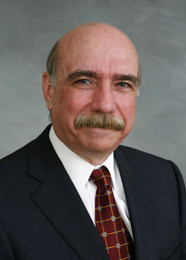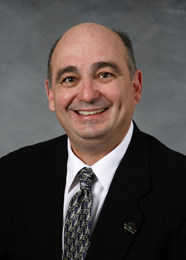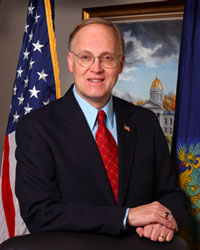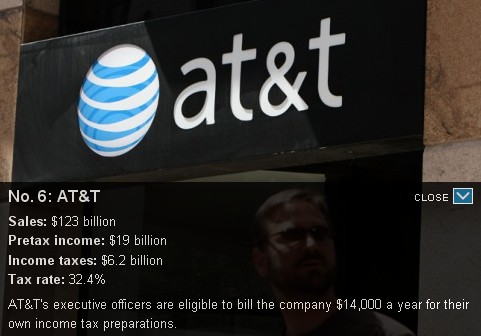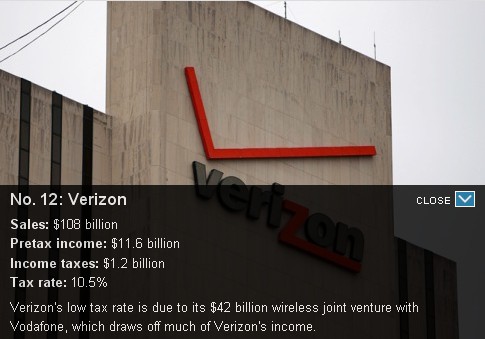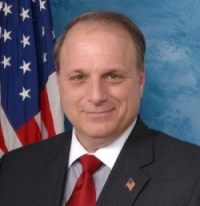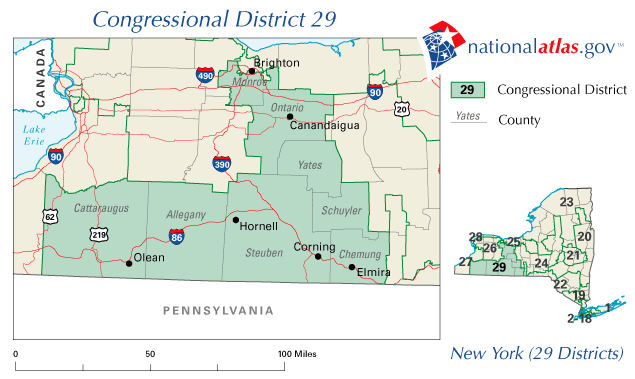Action Alert: North Carolina Legislature Considers Moratorium on Municipal Broadband – A Full Report
Report on Today’s Legislative Meeting
As I have been reporting here, the moratorium on municipal broadband is alive and well in the legislative halls of Raleigh. Senator David Hoyle (D-Gaston), sponsor of last year’s consumer atrocity HB1252, is back again asking Senator Daniel Clodfelter (D-Mecklenburg County) for a vote May 5th on a proposed moratorium for municipal broadband projects. Hoyle is not running for re-election.
While no new legislation has surfaced yet, several legislators continue to hint that a new bill is forthcoming. Be assured any such legislation will be designed to protect today’s monopoly/duopoly marketplace for broadband service in North Carolina.
Senator David Hoyle calls on the legislative committee to introduce and vote for a moratorium on municipal broadband projects in North Carolina. (April 21, 2010) (1 minute, 30 seconds)
You must remain on this page to hear the clip, or you can download the clip and listen later.
<
p style=”text-align: center;”>
Meeting Highlights:
• Senator Clodfelter opened the meeting stating that he “wants to focus on revenue issues/financing, not whether or not high speed Internet is a good thing.”
• Heather Fennell, from the research division at the General Assembly gave a presentation citing laws that govern cities, the original lawsuit that established precedent for cities to construct municipal fiber networks, what cities have them, and who pays the taxes on different systems.
• Vance Holloman, Deputy Treasurer-State and Local Finance Division spoke next. He assured the committee and attending audience that North Carolina’s existing municipal systems are in good standing and he expected they would be able to pay down debts incurred from initial construction and deployment costs. Holloman added the Local Government Commission, which has to approve the financing of these systems, believed these projects represent “solid economic development investments.” Holloman’s strong presentation should have encouraged legislators to favor economic development from fiber optic broadband, but we had a strong sense several members had already made up their minds made up to oppose these projects. You will have to convince them to reconsider.
• The next part of this session divided 50 minutes between private commercial providers and municipalities to share their views.
The commercial providers went first, beginning with attorney Marcus Trathen from the law firm Brooks/Pierce. Today, he was representing the North Carolina Cable Communications Association (NCCCA). Trathen has also appeared at prior meetings representing the interests of Time Warner Cable.
Trathen’s presentation was about as expected – talking points loaded with misrepresentations and misinformation. Trathen told the committee the industry does not object if cities build private networks for internal communications (how generous), but doesn’t want those networks competing with NCCCA members.
Suddenlink Communications’ Bill Paramore and AT&T lobbyist Herb Crenshaw also spoke, speaking in glowing terms about investments already made to improve service in the state. Crenshaw claimed AT&T is providing U-verse service in North Carolina after spending $1.2 billion dollars on system upgrades, an amount some have questioned (a 2007 press release pegged it at $350 million.) Of course, North Carolina’s cable and broadband customers who were promised savings from all this “robust competition” have instead been stuck paying annual rate increases that more often than not exceed the rate of inflation.
Next up were the municipalities.
Kelli Kukura from the North Carolina League of Municipalities started by challenging industry propaganda designed to downplay the benefits of municipal broadband. Kukura noted at least 30 North Carolina communities enthusiastically applied for Google’s proposed 1 gigabit fiber to the home network, illustrating intense interest in fiber networks. Google has also been an active proponent of municipal broadband, Kukura noted, reminding legislators the search engine giant defended the rights of municipalities seeking to deploy next generation broadband networks.
Among the communities that have their own municipal systems, job growth grew by an average of 6.4 percent. Kukura cited broadband success stories in Bristol, Virginia and Wilson, North Carolina.
Salisbury small businessman Brad Walser, owner of Walser Technology Group testified that North Carolina community’s new municipal broadband network Fibrant would meet his company’s needs for broadband capacity not available from commercial providers. Walser noted Salisbury is suffering from an unemployment rate exceeding 14 percent. Advanced broadband, he believes, could help the city attract new businesses that will help create new, high paying jobs. Fibrant is expected to launch later this year.
Some of the strongest testimony came from Colman Keane, senior strategic planner for municipally-owned EPB Telecom. Keane traveled all the way from EPB’s home in Chattanooga, Tennessee to share his experiences confronting a telecommunications industry hostile to the prospect of facing a new competitor. Keane has seen and heard the industry arguments all before, noting Chattanooga heard the exact same scare stories legislators in Raleigh were hearing today. Chattanooga also faced a proposed one year moratorium and a blizzard of industry-backed lawsuits, all which were won by the city.
The benefits of fiber optic broadband in Chattanooga include dramatically-improved broadband speeds as well as a more efficient power grid made possible from smart meters that help Chattanoogans reduce their peak power usage, saving money. I want to thank Colman for making the long journey on behalf of consumers in North Carolina.
• Finally, Raleigh community activist and former city council candidate Octavia Rainey spoke out against municipal broadband, which concerned me. Rainey spent her time seated with the telecom lobbyists, and her presentation illustrated the impact of astroturf efforts to co-opt good-hearted consumers into the industry cause. I hope to establish a dialogue with Ms. Rainey to share our information with her and learn more about how she reached her views on this subject. More to come.
The complete hearing of the Revenue & Laws Committee of the North Carolina Legislature on the issue of the financial implications of municipal broadband, chaired by Senator Daniel Clodfelter (D-Mecklenburg County) (April 21, 2010) (2 hours, 8 minutes)
You must remain on this page to hear the clip, or you can download the clip and listen later.
<
p style=”text-align: center;”>
[Octavia has a long history of community involvement in Raleigh, trying hard to improve her neighborhoods and life in general for area residents, something she is to be applauded for doing. I suspect Ms. Rainey has formed her views on municipal broadband in part from her close working relationship with AT&T, who has a long history trying to make friends with various community groups in part to win favor for their corporate agenda. In this case, Octavia admits AT&T’s Cynthia Mitchell and her have become “great partners.” AT&T provided support in building an area playground and also paid for lunch for volunteers working on the project, adding the company wanted to be a part of the Raleigh community. There is nothing wrong with that, of course, but one wonders if the conversation also drifted into AT&T’s talking points along the way.
Ms. Rainey also praised AT&T for delivering free Internet service to 290 Raleigh-area families last fall, which would make it ironic if she didn’t support municipal broadband, which has a proven track record of erasing the digital divide and lowering prices for hard-pressed consumers. These are the people that need some fact-based information about the true benefits of municipal broadband. — Phillip Dampier]
Today was expected, but disappointing nonetheless. Hoyle actually suggested that fiber networks may be obsolete in five years and we may be moving to wireless. If that were true, why is he hellbent on a moratorium and the banning of such networks at the industry’s behest? Why would the telecommunications industry be concerned about “obsolete fiber networks?” The only thing obsolete here are the broadband networks owned by big cable and phone companies Hoyle wants to preserve and protect.
Rep. Pryor Gibson, who we noted is a manager for Time Warner Cable Construction agreed to recuse himself from this issue after it became a point of contention and sat in the back corner of the room.
All of your e-mails and calls have been getting through to the legislators. This kind of attention makes them nervous and I ask you to continue. I can assure you that we here at Stop the Cap!, along with Communities United for Broadband, Broadband for Everyone NC, and Save North Carolina Broadband are going to ratchet up attention on this issue.
WHAT YOU CAN DO TO HELP
Continue writing and calling the legislators below and asking them to oppose a moratorium on municipal broadband. Make plans on May 5th to come to Raleigh and be part of the crowd that opposes the moratorium. I will post meeting details as they develop.
Please thank the legislators we have identified on this committee as friends of our cause:
- Sen. Daniel T. Blue, Jr. Wake [email protected] (919) 733-5752 Democrat (919) 833-1931 Attorney
- Sen. Fletcher Lee Hartsell, Jr. Cabarrus, Iredell [email protected] (919) 733-7223 Republican (704) 786-5161 Attorney
- Sen. Josh Stein Wake [email protected] (919)715-6400 Democrat (919)715-6400 Lawyer
- Rep. Paul Luebke (Co-Chair) Durham [email protected] 919-733-7663 Democrat 919-286-0269 College Teacher
- Rep. Jennifer Weiss Wake [email protected] 919-715-3010 Democrat 919-715-3010 Lawyer-Mom
The rest of the lot either doesn’t support North Carolina consumers or have not yet made their views known on this issue. We must pin them down and identify those elected legislators that represent the people versus those representing big cable and phone interests. Be sure to tell them you will interpret any support for a moratorium on municipal broadband to mean they are opposed to competition, opposed to lower prices for consumers, opposed to job creation and economic growth, and obviously for the cable and phone interests that will stop at nothing to keep these systems from being built.
Ask them how they could possibly support keeping North Carolina 41st in the country in broadband rankings, why they are against reducing the 11.2 percent unemployment rate (10th worst in the country) in North Carolina, and how they can justify a vote that guarantees exactly more of the same. If you are from a city that applied for Google Fiber, remind your legislator passing this kind of hostile moratorium delivers a strong message this state is not serious about the next generation of broadband, and Google should look elsewhere.
Above all, note now that they understand the true implications this moratorium will have on constituents, you are confident there is no way they could ever support such a bad idea. Their delivery of a strong “no” vote reminds you why you supported them in the last election and will consider doing so again in the next.
Always be polite, professional, and persuasive in your correspondence, but deliver a clear and firm message that supporting a moratorium is completely unacceptable. Finally, be sure to ask them to get back in touch with you regarding their position on this issue as soon as possible. Then let us know!
- Sen. Daniel Gray Clodfelter (Co-Chair) Mecklenberg [email protected] (919) 715-8331 Democrat (704) 331-1041 Attorney
- Sen. Peter Samuel Brunstetter Forsyth [email protected] (919) 733-7850 Republican (336) 747-6604 Attorney
- Sen. David W. Hoyle Gaston [email protected] (919) 733-5734 Democrat (704) 867-0822 Real Estate Developer/Investor
- Sen. Samuel Clark Jenkins Edgecomb, Martin, Pitt [email protected] (919) 715-3040 Democrat (252) 823-7029 W.S. Clark Farms
- Sen. Jerry W. Tillman Montgomery, Randolph [email protected] (919) 733-5870 Republican (336) 431-5325 Ret’d school teacher
- Rep. Harold J. Brubaker Randolph [email protected] 919-715-4946 Republican 336-629-5128 Real Estate Appraiser
- Rep. Becky Carney Mecklenberg [email protected] 919-733-5827 Democrat 919-733-5827 Homemaker
- Rep. Pryor Allan Gibson, III Anson, Union [email protected] 919-715-3007 Democrat 704-694-5957 Builder/TWC contractor
- Rep. Dewey Lewis Hill Brunswick, Columbus [email protected] 919-733-5830 Democrat 910-642-6044 Business Exec (Navy)
- Rep. Julia Craven Howard Davie, Iredell [email protected] 919-733-5904 Republican 336-751-3538 Appraiser, Realtor
- Rep. Daniel Francis McComas New Hanover [email protected] 919-733-5786 Republican 910-343-8372 Business Executive
- Rep. William C. McGee Forsyth [email protected] 919-733-5747 Republican 336-766-4481 Retired (Army)
- Rep. William L. Wainwright Craven, Lenoir [email protected] 919-733-5995 Democrat 252-447-7379 Presiding Elder
The future of North Carolina’s economic growth is at stake here.


 Subscribe
Subscribe
